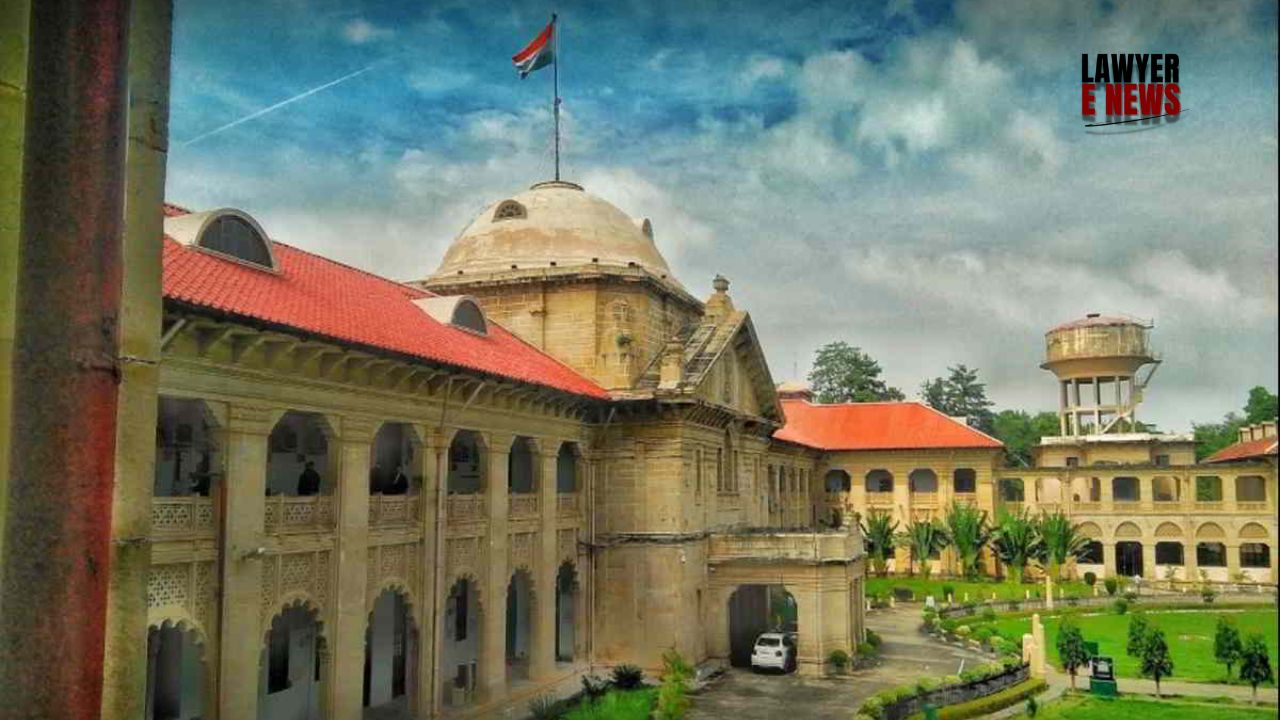-
by Admin
15 February 2026 5:35 AM



Allahabad High Court in Upendra @ Balveer v. State of U.P. acquitted the appellant, Upendra alias Balveer, who had been convicted by a trial court of murdering his wife under Section 302 of the Indian Penal Code (IPC). The High Court found that the trial court improperly altered charges, leading to a conviction without fair opportunity for defense, and that the prosecution had not met its burden of proof.
The appellant, Upendra, was initially charged with dowry-related offenses under Sections 498-A and 304-B of the IPC and Section 3/4 of the Dowry Prohibition Act, based on allegations of harassment and dowry demands. Upendra's wife, Deepika, died from severe burns under disputed circumstances. Her family accused Upendra of murder over dowry disputes, while the defense argued that she died accidentally due to a cooking-related fire. The trial court acquitted Upendra’s parents but found him guilty of murder, citing unexplained injuries and a two-month-old fetus in her womb.
The High Court emphasized that in cases where a crime occurs in a domestic setting, Section 106 of the Evidence Act does not shift the burden of proving murder onto the accused unless the prosecution first establishes a prima facie case of the accused’s presence and involvement. The Court observed that the prosecution had failed to demonstrate Upendra’s presence during the incident or to establish any motive for murder, making Section 106 inapplicable.
The High Court found that the trial court had violated procedural safeguards by altering the charge to murder (Section 302 IPC) after the accused’s statement under Section 313 of the Criminal Procedure Code was recorded. This left the defense unable to contest the charge adequately, which the High Court ruled as prejudicial to the appellant’s right to a fair trial.
"The accused-appellant was not given an opportunity to defend himself against the charge for which he was convicted," the Court stated, asserting that the alteration of charges without proper notice was a violation of fair trial principles.
In a significant commentary on wrongful prosecutions, the Allahabad High Court noted the lack of a statutory framework in India to compensate those wrongfully convicted. The Court referenced the Law Commission’s 277th Report, which advocates for legislative measures to indemnify victims of wrongful prosecution. The High Court observed that such frameworks exist in the U.K., the U.S., and other countries but remain absent in India, resulting in prolonged suffering for wrongfully prosecuted individuals and their families.
"The trauma caused by false accusations and extended detentions is an imponderable harm," the Court remarked, emphasizing the lasting impact of wrongful prosecution on a person’s life, family, and dignity.
The Allahabad High Court allowed the appeal, setting aside the conviction and sentence, while highlighting the urgent need for statutory reform. The Court expressed dismay over the absence of a compensation mechanism for wrongful prosecution victims and urged the government to implement the Law Commission’s recommendations to align with the ICCPR, which mandates compensation for wrongful convictions.
Date of Decision: October 25, 2024
Upendra @ Balveer v. State of U.P.
